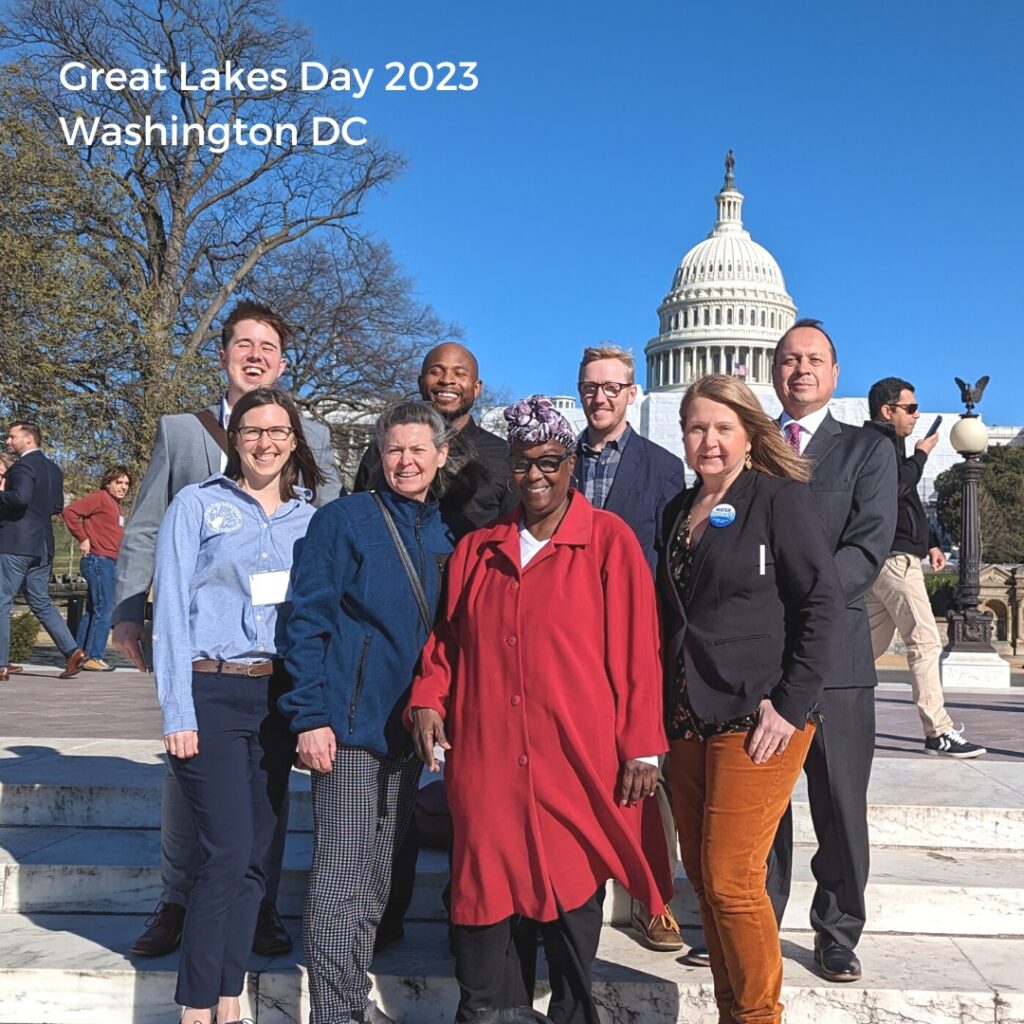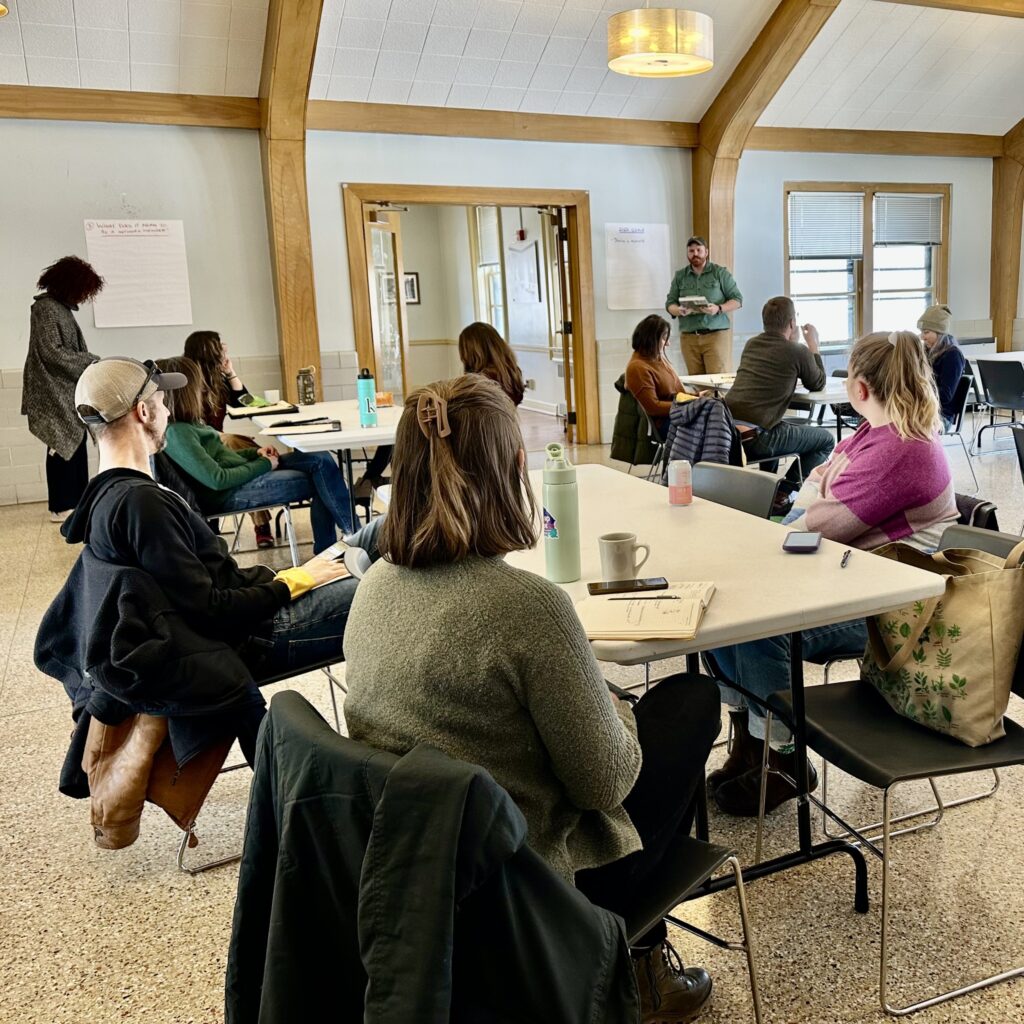
Milwaukee Water Commons is an urban network and non-profit organization for community stewardship of the common waters in and around Wisconsin’s largest city, with the goal of making Milwaukee a model “Water City”. In an age of commodification and ever increasing privatization of public resources, Milwaukee Water Commons believes that water can’t be owned and that responsibility for clean and abundant fresh water must involve public input. Based in a city that sits on the western shore of Lake Michigan, MWC feels that the Great Lakes should be recognized as a gift that must be nurtured to sustain the region.
The organization is a firm believer in community organizing through relational engagement and building trust through process and action. The vision of Milwaukee as a model water city was developed through a participatory process with more than 1,300 residents and includes six initiative areas for the Water City Agenda — drinking water, water quality, Blue/Green jobs, arts & culture, education & recreation, and Green infrastructure. MWC also focuses on 10 key practices of city life for becoming a model water city: celebrating water; climate resilience; empowering all citizens for solution making; knowledge of watersheds; connections to health, food, faith and climate; racial justice and water equity; water responsibility & care; public health; conservation, health & vitality; and civic identity/sense of belonging.
MWC’s organizing strategy revolves around the Jemez Principles for Democratic Organizing (established at a 1996 meeting hosted by the Southwest Network for Environmental and Economic Justice in New Mexico.) These principles start with being inclusive, an emphasis on bottom-up organizing, letting people speak for themselves, working together in solidarity and mutuality, building just relationships amongst members and partners, and a firm commitment to self-transformation. This last principle emphasizes working for a change in the collective mindset from individualism to a community-centered approach that values peace and justice.
A flagship program is the Water School initiative to build community-based leadership by partnering directly with neighborhood organizations to engage members in a year-long commitment to the watersheds of Lake Michigan and the Milwaukee River Basin. Mini-grants are disbursed to implement neighborhood-based water stewardship projects that address a particular water challenge to community health, equity, and economic development.
Other key projects include an Environmental Justice Roundtable, a need that was catalyzed after a period during which Wisconsin’s environmental regulatory agencies were gutted by political powers that prioritized profits over health and sustainability. A shift to a more environmentally friendly state government in 2018 opened a door for MWC and likeminded partners to engage state officials in needed dialogues for environmental justice.

Another campaign is Branch Out Milwaukee, aimed at maximizing the benefits of the city’s tree canopy by fostering collective strategies for tree maintenance and reforesting that won’t leave underserved and marginalized neighborhoods behind.
The Beach Ambassador Project aims to increase water safety awareness and public wellness by teaming up with other local groups to communicate beach conditions at Lake Michigan. MWC’s Beach Ambassador Team engages with beachgoers and hires seasonal interns to participate.
MWC is also a strong advocate for utilizing the arts in conjunction with urban renewal, offering artist residencies for creators to become informed water leaders who raise awareness about water issues through their multidisciplinary artistic endeavors. Selected participants can receive up to $5,000 to create their proposed work.
For more information:
Contact
Brenda Coley
staff@milwaukeewatercommons.org
Website
Social Media
Climate Impacts
Flooding
Environmental Justice Concerns
Groundwater Contamination, Lead Contamination, PFAS/PFOS, Sewage/Sewage Treatment
Strategies
Art Activism, Green Infrastructure, Nature-Based Solutions, Policy Reform
501c3 Tax Deductible
No
Accepting Donations
Yes
